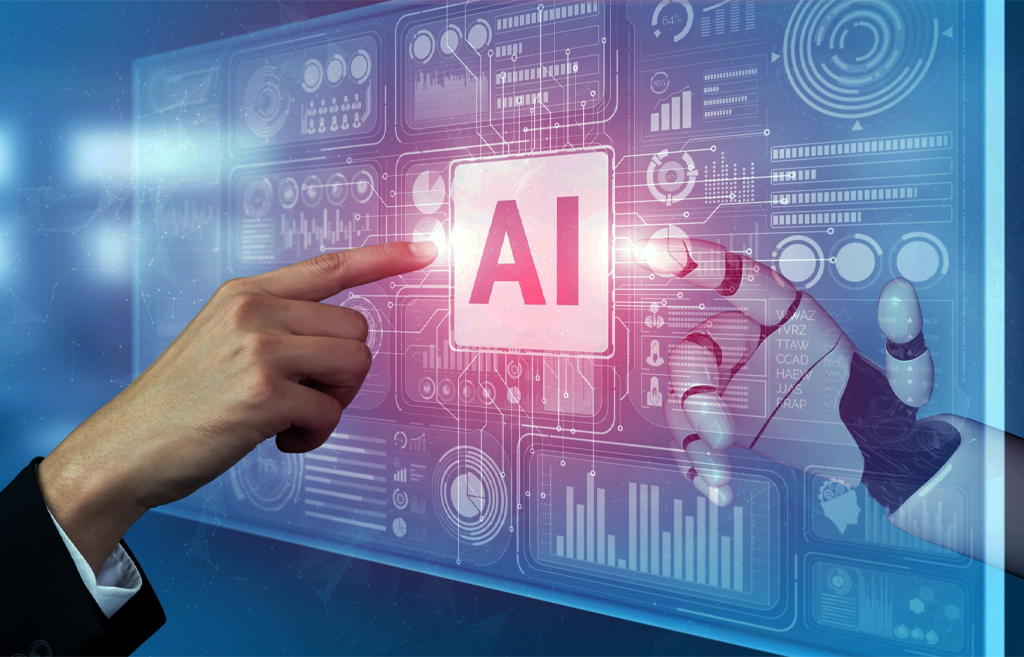Simplifying Enterprise AI Implementation: How Service Providers Are Bridging the Gap
The term “AI” can now be found in nearly every tech silo and implementing AI solutions can feel like navigating a maze. While many enterprises recognize the transformative potential of AI and AI tools, they often struggle with the complexity of implementation. Specialized AI service providers are growing quickly to meet new challenges and they’re changing the game by making enterprise AI adoption smoother and more accessible than ever before.
What Can AI Service Providers Offer Your Enterprise?
1. Conversational AI Solutions
Imagine implementing a customer service chatbot without writing a single line of code. Modern AI service providers offer low-code/no-code platforms that allow enterprises to build, deploy, and manage intelligent virtual assistants across multiple channels. These solutions can:
- Handle customer inquiries 24/7
- Process routine employee requests
- Automate appointment scheduling
- Provide multi-language support automatically
Modern conversational AI platforms leverage sophisticated natural language processing (NLP) engines that go far beyond simple pattern matching. These systems utilize transformer-based language models that can understand context, maintain conversation history, and handle complex multi-turn dialogues. The platforms typically include advanced features such as sentiment analysis, intent recognition with confidence scoring, and automatic language detection that supports seamless switching between more than 100 languages.
Enterprise-grade conversational AI solutions also offer sophisticated dialog management capabilities, allowing businesses to create complex conversation flows that can handle multiple contexts simultaneously. These systems can maintain user context across different channels, whether a customer starts a conversation on a website chat and continues it through WhatsApp or email. The platforms typically achieve this through sophisticated session management and context switching capabilities, maintaining conversation state across multiple touchpoints.
2. Process Automation and Integration
One of the biggest challenges enterprises face is connecting AI capabilities with existing systems. Leading service providers offer:
- Pre-built connectors for popular enterprise applications
- Custom API integration services
- Workflow automation tools
- Seamless integration with legacy systems
Modern AI service providers have developed sophisticated middleware layers that can interface with virtually any enterprise system. These integration capabilities typically include support for REST APIs, SOAP web services, database connectors, and even legacy system protocols like SFTP and EDI. The platforms often include robust API management features with rate limiting, request throttling, and automatic retry mechanisms to ensure stable operations at scale.
The workflow automation capabilities have evolved to include complex orchestration engines that can handle sophisticated business processes. These systems can manage parallel processing streams, implement complex decision trees, and handle error conditions gracefully. Many providers now offer visual workflow designers that allow business analysts to create and modify process flows without deep technical knowledge, while still providing the flexibility for developers to customize using code when needed.
3. Advanced Analytics and Insights
Modern AI platforms go beyond basic reporting by offering sophisticated analytics capabilities powered by machine learning. These systems can automatically identify patterns in user interactions, predict customer behavior, and provide actionable insights for business optimization. The analytics engines typically employ various ML models, including clustering algorithms for customer segmentation, anomaly detection for identifying unusual patterns, and predictive models for forecasting future trends.
4. Knowledge Management and Content Intelligence
Enterprise AI providers now offer advanced knowledge management systems that can automatically organize, classify, and extract insights from vast amounts of unstructured data. These platforms utilize sophisticated document understanding capabilities powered by computer vision and NLP to process everything from scanned documents to PDFs and images. The systems can automatically extract entities, relationships, and key information, creating structured data from unstructured content.
These platforms typically include features like automatic taxonomy generation, content categorization, and semantic search capabilities. They can maintain knowledge graphs that represent complex relationships between different pieces of information, allowing for more intelligent information retrieval and question answering capabilities.
5. Development and Deployment Tools
Modern AI platforms provide comprehensive development environments that support the entire AI lifecycle. This includes tools for data preparation and cleaning, model training and validation, and deployment management. Many platforms now offer automated machine learning (AutoML) capabilities that can automatically select and optimize models based on the specific use case and data characteristics.
The deployment infrastructure typically includes sophisticated monitoring and management capabilities, with features like:
- A/B testing frameworks for comparing different model versions
- Automatic model retraining based on performance metrics
- Load balancing and auto-scaling capabilities
- Comprehensive logging and debugging tools
- Model versioning and rollback capabilities
6. Security and Compliance Framework
AI has ushered in a whole new category of AI Security Risk. Enterprise AI providers have developed robust security frameworks that go beyond basic encryption and access control. These platforms typically include:
- Fine-grained role-based access control (RBAC)
- Data masking and tokenization capabilities
- Audit logging with tamper-proof records
- Automated compliance monitoring and reporting
- Built-in PII detection and protection
Real-World Use Cases
Banking Success Story
A major bank implemented an AI-powered virtual assistant that handles over 100,000 customer interactions daily. The result? Customer response times dropped from hours to seconds, and customer satisfaction scores increased by 35%.
Healthcare Innovation
A healthcare provider deployed an AI solution to manage appointment scheduling and patient inquiries. They saw a 60% reduction in call center volume and a 40% decrease in no-show rates.
Retail Transformation
A retail chain implemented an AI-powered inventory management system that reduced stockouts by 30% and improved inventory turnover by 25%.
Why Consider an AI Service Provider?
1. Faster Time to Market
Instead of building from scratch, enterprises can leverage pre-built components and accelerators to implement AI solutions in weeks rather than months or years.
2. Cost Efficiency
- Reduced development costs
- Lower maintenance overhead
- Pay-as-you-grow pricing models
- Minimal internal IT resource requirements
3. Enterprise-Grade Security
Leading providers offer:
- End-to-end encryption
- GDPR compliance
- SOC 2 certification
- Regular security audits
4. Continuous Innovation
Service providers constantly update their platforms with:
- Latest AI technologies
- New features and capabilities
- Enhanced security measures
- Improved performance optimizations
Getting Started
When evaluating AI service providers, consider these key factors:
- Ease of implementation and integration
- Scalability and flexibility
- Industry expertise and proven track record
- Support and training resources
- Total cost of ownership
Looking Ahead
The landscape of enterprise AI implementation is evolving rapidly, and service providers are at the forefront of this transformation. As we look to the future, several key trends are shaping how enterprises will leverage AI services:
Democratization of AI Development
The next generation of AI platforms will further democratize AI development through increasingly sophisticated no-code/low-code solutions. We’re seeing the emergence of “AI composition” tools that allow business users to create complex AI solutions by combining pre-built components, much like assembling building blocks. These platforms will incorporate automated AI architecture design, suggesting optimal combinations of AI services based on specific business requirements.
Hybrid AI Architectures
Future enterprise AI solutions will seamlessly blend cloud-based and edge computing capabilities. This hybrid approach will enable:
- Real-time processing of sensitive data on-premises
- Intelligent workload distribution between cloud and edge
- Reduced latency for time-critical applications
- Lower operational costs through optimized resource utilization
- Enhanced privacy compliance through localized data processing
Designing your Wide Area Network for AI workloads is a critical step. Tier 1 ISPs are moving quickly to scale to the projected demands and interesting new multi cloud connectivity solutions are proving to be excellent options. Macronet Services has extensive expertise in the most complex of networking environments – contact us anytime for a conversation.
Enhanced Generative AI Integration
Enterprise AI platforms are rapidly incorporating generative AI capabilities beyond basic text generation. Next-generation platforms will offer:
- Custom large language model fine-tuning with enterprise data
- Automated content creation and optimization across multiple formats
- Code generation and optimization for business applications
- AI-driven process automation design
- Intelligent document generation and processing
- Multi-modal AI capabilities combining text, image, and voice
Advanced Cognitive Services
The next wave of AI services will offer more sophisticated cognitive capabilities, including:
- Enhanced emotional intelligence in customer interactions
- Advanced decision support systems using multi-agent architectures
- Predictive analytics with explainable AI components
- Autonomous system optimization and self-healing capabilities
- Cross-functional AI that can handle multiple domains simultaneously
Sustainable AI Solutions
Environmental considerations are becoming increasingly important in enterprise AI deployment. Future platforms will focus on:
- Energy-efficient AI model deployment
- Carbon footprint monitoring and optimization
- Sustainable computing resource allocation
- Green AI development practices
- Environmental impact reporting and optimization tools
Enhanced Security and Governance
As AI systems become more integral to business operations, security and governance capabilities will evolve to include:
- AI-powered threat detection and response
- Automated compliance monitoring and reporting
- Enhanced model governance and lifecycle management
- Real-time bias detection and mitigation
- Comprehensive audit trails for AI decision-making
Collaborative AI Ecosystems
The future of enterprise AI lies in collaborative ecosystems where:
- Multiple AI services work together seamlessly
- Cross-organizational AI collaboration becomes standard
- Industry-specific AI marketplaces emerge
- Standardized AI service integration protocols develop
- Open AI frameworks enable broader innovation
Impact on Enterprise Strategy
As these technologies mature, enterprises will need to:
- Develop comprehensive AI governance frameworks and AI Centers of Excellence
- Build internal AI literacy across all levels
- Create flexible integration architectures
- Establish clear ROI metrics for AI initiatives
- Maintain agile adoption strategies
Preparing for the Future
To stay ahead of these developments, organizations should:
- Invest in scalable AI infrastructure that can adapt to new technologies
- Develop clear AI adoption roadmaps aligned with business objectives
- Build internal capabilities while leveraging external expertise
- Stay informed about emerging AI standards and best practices
- Maintain flexible partnerships with AI service providers
The future of enterprise AI isn’t about building everything from scratch – it’s about finding the right partner who can help you implement and scale AI solutions efficiently and effectively. As AI technology continues to evolve at a rapid pace, the role of service providers will become increasingly crucial in helping enterprises navigate this complex landscape while maintaining focus on their core business objectives. We are here to help.
Recent Posts
- How to Choose a Technology Advisor in 2026
- The Ultimate Guide to Equinix Competitors in 2026
- Cato Networks Deep Dive: A Technical SD-WAN & SASE Architecture Guide for Senior Network Engineers
- ROI of AI: How Network Bottlenecks are Wasting 30% of Your GPU Investment
- What is an AI Readiness Assessment? The 2026 Executive Guide to Enterprise Scaling
Archives
- February 2026
- January 2026
- December 2025
- October 2025
- September 2025
- August 2025
- July 2025
- June 2025
- May 2025
- April 2025
- March 2025
- February 2025
- January 2025
- December 2024
- November 2024
- October 2024
- September 2024
- August 2024
- July 2024
- June 2024
- May 2024
- April 2024
- March 2024
- February 2024
- January 2024
- December 2023
- November 2023
- October 2023
- September 2023
- August 2023
- July 2023
- June 2023
- May 2023
- April 2023
- March 2023
- February 2023
- January 2023
- December 2022
- November 2022
- October 2022
- September 2022
- August 2022
- July 2022
- June 2022
- May 2022
- April 2022
- March 2022
- February 2022
- January 2022
- December 2021
- November 2021
- October 2021
- September 2021
- August 2021
- July 2021
- June 2021
- May 2021
- April 2021
- March 2021
- December 2020
- September 2020
- August 2020
- July 2020
- June 2020
Categories
- Clients (12)
- Telecom Expense Management (1)
- Satellite (1)
- Artificial Intelligence (9)
- Travel (1)
- Sports (1)
- Music (1)
- News (288)
- Design (4)
- Uncategorized (1)
- All (19)
- Tips & tricks (25)
- Inspiration (9)
- Client story (1)
- Unified Communications (196)
- Wide Area Network (310)
- Cloud SaaS (60)
- Security Services (71)




